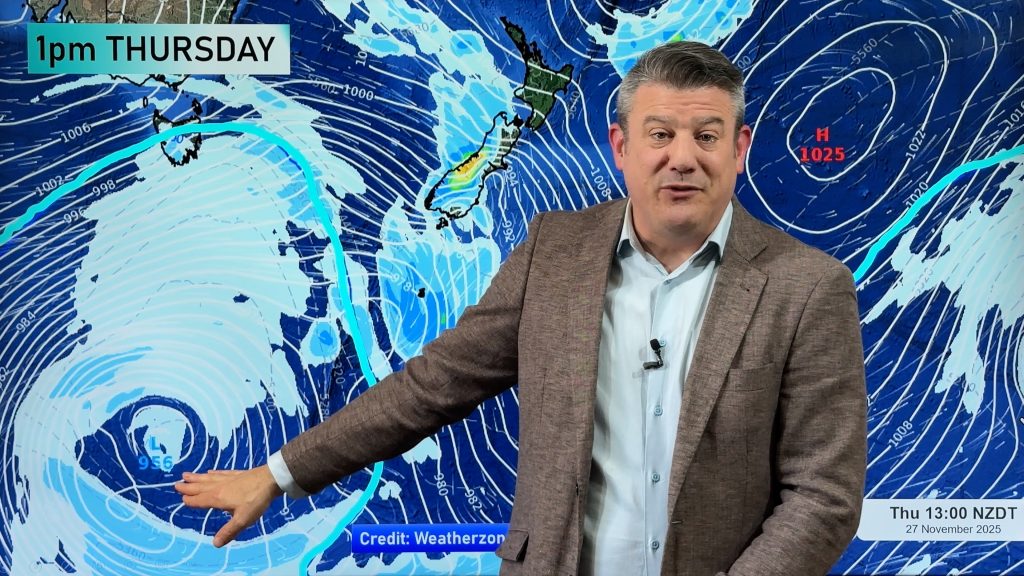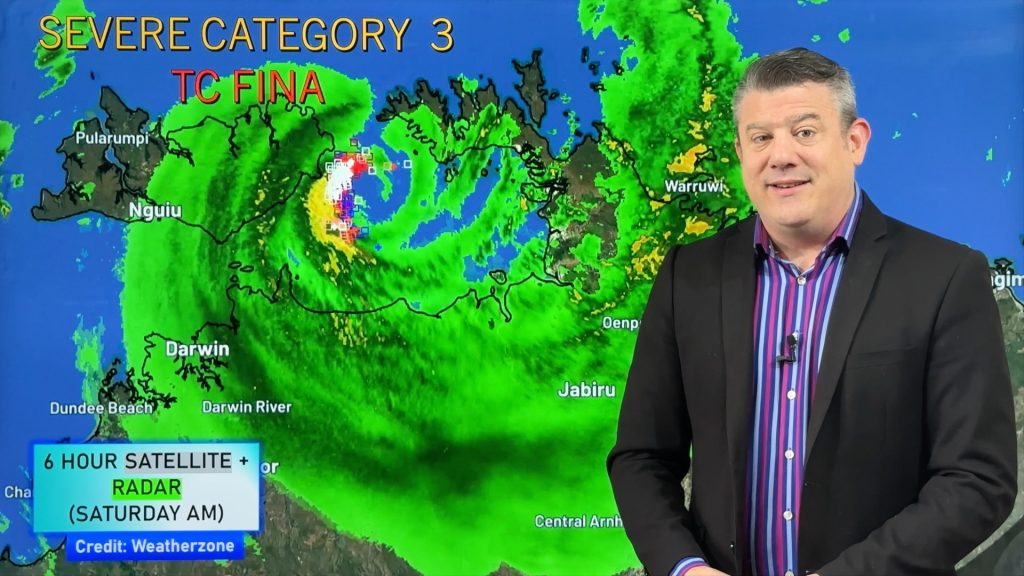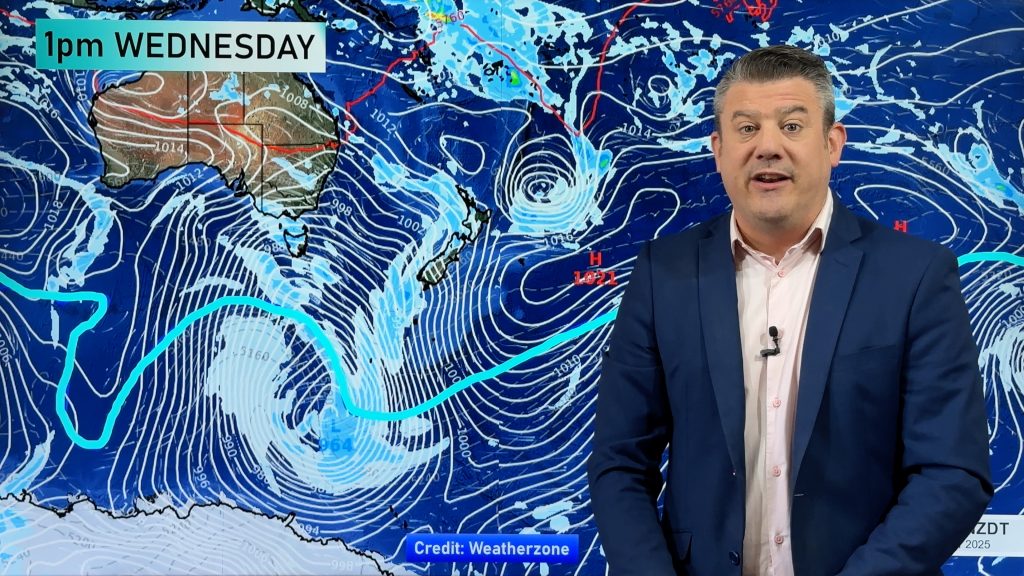FIJI: Read these incredible tales of survival from Cyclone Winston
5/03/2016 8:19pm

> From the WeatherWatch archives
Incredible tales of survival have emerged from shattered towns and villages on and around Fiji’s main island Viti Levu, which are still reeling two weeks after Cyclone Winston struck.
Communities across the island’s north and west will never forget the few hours it took for them to lose everything, including family and friends.
ABC reporters were among the first people to reach this isolated and battered community of Nai Vutu, where people are looking for ways to recover and rebuild.
The road had only just been cleared to allow aid to start flowing.
Teacher Varaone Radagia sheltered in his house with five others when the most powerful storm to make landfall in the southern hemisphere hit.
“About six of us were in the house and I told them ‘you have to move to one side of the house’,” he told 7.30.
“First the verandah … was blown away.”
As the outer walls collapsed, everyone crammed into Mr Radagia’s kitchen.
“Three gentlemen plus mother and the daughter, they all crammed in [under the table],” Mr Radagia said.
Want to help with the #CycloneWinston relief? Visit our #FijiAppeal page: https://t.co/jAU4AbkxVA and donate. pic.twitter.com/52GtcttMyp
— ABC News 24 (@ABCNews24) March 4, 2016
“The posts hit the wall … and then the posts hit me.”
Then kitchen wall collapsed. Mr Radagia only survived because the falling wall landing on the freezer.
But if his story is amazing, you will barely believe what happened to one of his neighbours, Manueli Naqica.
“I held my children tight in case they were blown away and injured or killed,” he told 7.30 through an interpreter.
He was desperately trying to hang on to two infants when the house disappeared and they were, literally, blown away in what became a flying bed.
“He was on top of the bed and he flew with the little baby … they were picked up by the wind [and ended up] over here,” Mr Radagia explained, pointing to a spot about 10 metres away.
Amazingly, no-one was injured.
Cyclone Winston may have taken villagers’ houses and possessions, but not the tradition of welcoming visitors remains.
Even in the midst of the crisis, when the ABC arrived, a ritual thank you was observed, along with the obligatory kava.
The ABC was told of an even more isolated village, Naseyani, that had been cut off since the cyclone.
Washed out roads and debris-strewn river crossings had made roads impassable.
After much effort, the ABC crew made it through, but things do not look good. Most of the houses are flattened.
Lavenia Lauroko, her brother and her mother were in the capital Suva when the storm hit. They had just buried her father.
They returned to find their home had gone.
“Nothing at all,” Ms Lauroko told 7.30.
“We came and then we were just, like, crying because when we came up to the river we found about half our stuff down there.
“[We’ve just got] the clothes that we took when we went to Suva, that’s all â?? we’ve just got one bag each.”
Now friends and family are building a temporary shelter which will be their home for who knows how long.
“I cried a lot,” said Ms Lauroko’s mother, Senimili Mocelutu.
“It hurt me deeply because we just lost our father, then this disaster came as a total shock. This is the first time I’ve experienced this ever.
“I cried a lot because we lost everything.”
Just down the road, this is what remains of the Naseyani Primary school.
The school had been renovated with Australian aid money. Everyone pitched in with the clean-up.
There was not much worth saving the books, the desks, the chairs were all burnt as the debris was cleared.
“Only about 5 per cent of what is left will be salvaged,” head teacher Gordon Fong told 7.30.
“The rest will be burnt.
55,000 Fijians are still in shelters two weeks after #CycloneWinston#FijiRelief appeal – https://t.co/0I8cFxVfjd pic.twitter.com/84umcNmIoO
— ABC News 24 (@ABCNews24) March 3, 2016
“We don’t have power and I think it’ll be down for a couple of months, but we are lucky we have got water.”
In one of the village churches they sang and prayed for better days.
But there was no choir at the Seventh Day Adventist church, which has literally gone with the wind.
“We lose hope when we saw our churches damaged,” church elder Eleni Tinai told 7.30.
“For us, we have to take hands together and build up a new church for our community.”
With so many houses destroyed, a tarpaulin shelter strung up over some wooden poles was serving as home for 11 people, mostly children, and no-one could say when they would live in a house with water and electricity again.
Off the cyclone battered north-east coast of the main island is Ovalau, an island of 8,000 residents, where many are struggling to cope in aftermath of the cyclone.
Most of the damage in coastal villages was caused not by wind, but massive waves of up to four metres high.
Amorisio Ratuvada was waiting for his son and daughter to arrive back on the island for a funeral ceremony he wished was not happening.
His granddaughters were there and were a comfort for him, but nothing could bring back his wife, 59-year-old Taufa Amanaki.
She was trying to shelter from the storm, along with the rest of her family, but was crushed when the home collapsed.
She died later of her injuries.
“I can’t tell you how much I was suffering that day and we were very close and we loved each other,” Mr Raturvada told 7.30.
“The real pain is from deep inside because she was like a part of me.”
Tropical Cyclone Winston ripped out all before it but not the heart nor soul of nearly a million people.
With a spirit and resilience, the Fijians have just gone about the business of rebuilding without waiting for outside help but they desperately need it.
– Weatherzone/ABC
Comments
Before you add a new comment, take note this story was published on 5 Mar 2016.





Add new comment